The government has officially handed over the reconstructed Nigerian High Commission (NHC) building, which was demolished in June 2020, to the Nigerian Commission in Ghana.
The Ministry of Foreign Affairs and Regional Integration presented the one-storey apartment building, located off Independence Avenue in Accra, to the NHC on Wednesday. The building consists of four three-bedroom apartments designed to accommodate the commission’s staff, along with other essential facilities.
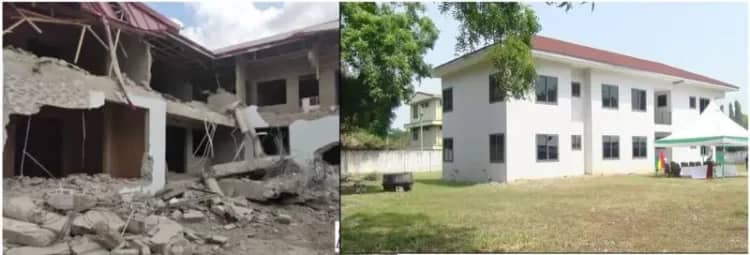
The handover ceremony was attended by notable figures including the UN Resident Coordinator in Ghana, Charles Abani; Chief Director of the Ministry of Foreign Affairs, Ramses Joseph Cleland; the Acting Nigerian High Commissioner to Ghana, Moses Ifedayo Adeoye; and traditional leaders from Nigerian communities in Ghana.
In her remarks, the Minister of Foreign Affairs and Regional Integration, Shirley Ayorkor Botchwey, described the reconstructed building as a symbol of the strong and enduring relationship between Ghana and Nigeria, grounded in shared values, mutual respect, and the collective drive for unity. She emphasized that the Ghana-Nigeria relationship goes beyond diplomacy, highlighting its historical, cultural, and economic significance.
The minister also noted that the swift reconstruction of the building demonstrated Ghana’s commitment to fulfilling its international obligations to provide a secure and welcoming environment for diplomatic missions.
Nigeria’s Minister of Foreign Affairs, Yusuf Maitama Tuggar, who was represented by Chimeze Ogu, the Director of the Foreign Service Academy, expressed deep gratitude to the Ghanaian government for its prompt intervention in reconstructing the building and addressing the incident.
He commended Ghana for establishing a committee to identify those responsible for the demolition, which helped preserve the diplomatic ties between the two countries.
Mr. Tuggar also appealed to the Ghanaian government to review the high cost of residence permits for ECOWAS nationals, which he said has become a financial burden for the Nigerian community in Ghana.
He further requested a reduction in costs related to medical examinations and non-citizen identification cards to facilitate easier movement and enhance regional cooperation.
This event underscores the continued solidarity and partnership between Ghana and Nigeria, furthering their collaboration for mutual benefit and regional integration.
“As we strive for regional integration and cooperation, it is essential that we revisit this policy and align it with ECOWAS protocols.
“The ECOWAS Free Movement Protocol aims to promote economic cooperation and development among member states. However, the exorbitant cost of residence permits hinders this progress,” Mr Tuggar said.

































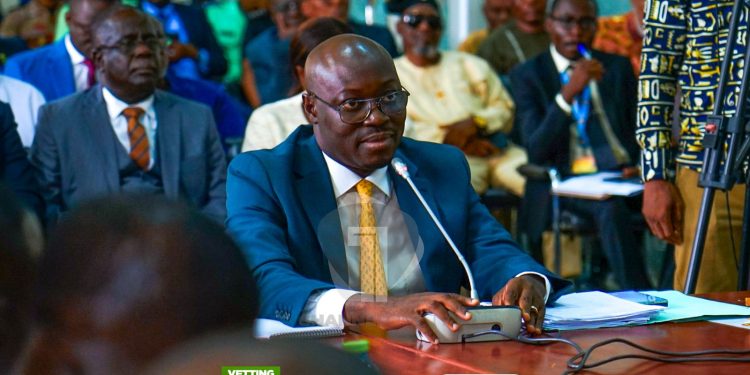


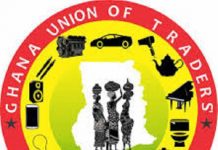




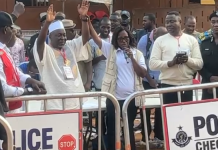














![[FREE FREE MONEY] Predict and Win a Guaranteed GH¢200 From Us EVERY WEEK](https://wordpress.ghanatalksradio.com/wp-content/uploads/2022/02/Predict-and-Win-Final-09-03-2021-218x150.jpg)
![[Predict & Win – 8th/Oct.] WIN A Guaranteed ¢200 From Us This Week](https://wordpress.ghanatalksradio.com/wp-content/uploads/2021/10/maxresdefault-16-218x150.jpg)
![[Predict & Win – 2nd] WIN A Guaranteed ¢200 From Us This Week](https://wordpress.ghanatalksradio.com/wp-content/uploads/2021/09/maxresdefault-50-218x150.jpg)
![[Predict & Win – 25th] WIN A Guaranteed ¢200 From Us This Week](https://wordpress.ghanatalksradio.com/wp-content/uploads/2021/09/maxresdefault-36-218x150.jpg)
![[Predict & Win – 18th] WIN A Guaranteed ¢200 From Us This Week](https://wordpress.ghanatalksradio.com/wp-content/uploads/2021/09/maxresdefault-23-218x150.jpg)

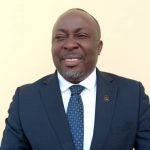
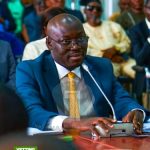





![[National cathedral] See full list of churches that have contributed since 2018](https://wordpress.ghanatalksradio.com/wp-content/uploads/2020/09/Ghana-National-Cathedral-GhanaTalksRadio-100x70.jpg)



